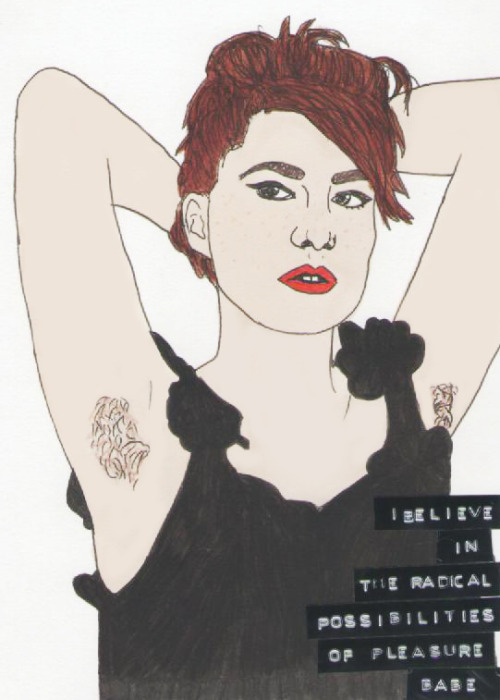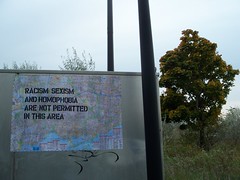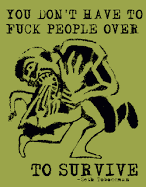 Happy (day after) International Women's Day! 20 Photos of Female Activists Throughout History
Happy (day after) International Women's Day! 20 Photos of Female Activists Throughout HistoryResistencia, the film: "The film follows 3,000 landless farming families as they occupy the palm oil plantations of Miguel Facussé, the richest man in Honduras. Over their two-year-long occupation, they've been threatened, jailed, beaten, had their homes burnt down, and more than forty farmers have been killed by Facussé's guards, the police, and the military, all of which work together to try and push them off the land. Despite this constant violence, the families are still there and they're not going anywhere."
Image: source.
Although comparisons to Nickled & Dimed make me worry it has the same problems (for instance, instead of an upper middle class white person pretending to be poor for a year, maybe we could actually talk to the people who are...) (although Ms. McMillan goes out of her way to present argue against the assumption that she comes from the middle class), I'm still adding this book to my "to read" list: "Planting, harvesting, processing, displaying, and cooking that vast hoard of grub, of course, requires veritable armies of workers. Keeping it cheap and plentiful for consumers, while also profitable for the food industry, means those workers generally get paid very little. The 11 million people who staff the nation's restaurants earn average wages of just over $10 an hour. The 230,000 people who plant and harvest our crops would consider that an improvement; their average pay is just $9.64 an hour. Meatpacking workers are, relatively speaking, the aristocrats of the system: the 83,000 men and women who slog through the blood and guts of our meat supply get $11.60 an hour for their trouble. In all of these occupations, workers bring home average annualized wages that land them below or just above the poverty line for a family of four....In her important new book, The American Way of Eating, Tracie McMillan illuminates this murky yet vital sector of our economy. In her year of research, she embedded herself in the Big Food trenches and (to paraphrase Kafka) scribbled down what she saw among the ruins. She worked undercover stints in California farm fields, at two Walmart stores in Michigan, and at an Applebee's in Brooklyn, living on the wages she eked out, often alongside the people with whom she toiled." source
Another great one from StoryCorps: A Mom Becomes A Man, And A Family Sticks Together.
"Here’s what Dr. King got out of the Sermon on the Mount. On Nov. 17, 1957, in Montgomery’s Dexter Avenue Baptist Church, he concluded the learned discourse that came to be known as the “loving your enemies” sermon this way: “So this morning, as I look into your eyes and into the eyes of all of my brothers in Alabama and all over America and over the world, I say to you: ‘I love you. I would rather die than hate you.’ ” Go ahead and re-read that. That is hands down the most beautiful, strange, impossible, but most of all radical thing a human being can say." from Radical Love Gets a Holiday by Sarah Vowell
"Knowing how to be alone is central to the art of loving. When we can be alone, we can be with others without using them as a means of escape." - bell hooks

















1 comment:
It's so cool that you linked to that StoryCorps story because I am acquainted with the family!
Post a Comment